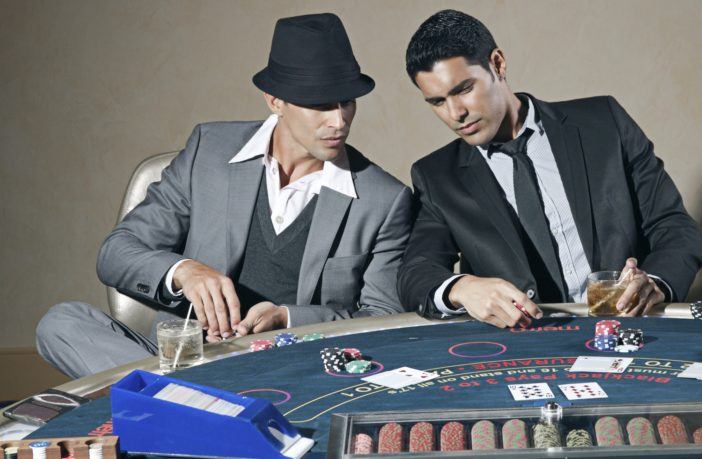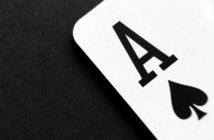Australians lose more money gambling than people from any other country in the world.
In fact, our gambling losses are almost out of this world.
The average per capita loss works out at around $1200 each and every year. This figure, according to the same source, is twice as high as that of the United States! Scary, right?
As one of Australia’s most popular games, it’s safe to assume that we’re losing considerable sums playing poker. With hard-earned money on the table, improving our standard of play is of paramount importance to minimizing losses!
And recognizing poker tells is one way to do it.
After all, to spot someone’s tell is to know when they’re bluffing. Call their bluff and you’re more likely to a) win the pot, and b) keep your cash.
Love to gamble but hate losing money? Read on to discover the primary tells that’ll help you spot a bluffer in no time.
Your Invitation to the Best Online Pokies in Australia
Like a punt on the slot machines?
Our top rated slots for October 2019 are the smash-hit online pokie sites: Ruby Fortune and Jackpot City Casino.
These sites include some impressive matched bonuses – up to $750 and $1600 respectively! With the potential for some seriously big wins, here’s your chance to get a piece of the action:
What Is a Poker Tell?
First, though, let’s run through a quick definition.
To spot a tell, you first need to know what it is that you’re looking for!
For anybody new to the game, poker tells are perceivable clues that indicate the strength of a player’s hand. They might be physical or verbal in nature, and they’re of enormous help in winning a hand and/or keeping your money.
People (including you!) rarely know they’re doing them. As such, they’re almost always subtle in nature. Spotting a tell requires a keen eye and ongoing vigilance throughout a game.
You’re looking for any patterns in speech or body language that reveal somebody’s hand. Of course, you’ll never know exactly what they’re holding.
You may, however, be able to ascertain whether their hand is better or worse than your own.
This vital information can help you better judge your strategy in any given hand. You can raise, check, or fold in line with your assertions.
6 Common Poker Tells
With that all said and done, let’s turn to some common tells to keep an eye on.
The world of poker is full of possible tells; each person at a table is likely to have one or two that are unique to them! The ones you’re about to learn about, though, are more prevalent in nature.
Here they are:
1. They Avert or Hold Their Gaze
Next time you’re at the table, try staring your opponents dead in the eye.
People who meet your gaze with ease and confidence often have a quality hand. After all, they feel comfortable in their position of strength, which comes over in their demeanour.
In the same way, somebody who averts their gaze might be faced with a bad hand and/or be bluffing. Their position of weakness comes over in their body language, making them more inclined to look away.
Of course, that shyness could be a bluff as well! They could be pretending, in the hope of covering up a quality hand.
Remember that you’re looking for patterns.
Take note of a player’s hands each time they hold or avert their gaze. In time, you’ll start to register what, if anything, it indicates.
Another noteworthy point is that the actions should be distinct from their typical approach.
Someone might make a habit of looking at you dead in the eye. Rather than indicating a quality hand, it’s just the way they play!
2. The Timing’s All Off
This particular tell is ubiquitous in the poker world.
It’s one of the most common you’ll come across–especially in people new to the game.
These tells of timing are simple, yet, on occasion, hugely revealing. Basically, the time it takes someone to make their decision can vary according to the strength of their hand.
Let’s face it, if you’re going to fold, then you’re going to fold. In the same way, it can take longer to make a decision when you have a hand of any merit. Players who delay are often weighing up whether to check, match, or raise.
Overall, it pays to keep an eye on the time it takes someone to make a move. There are always exceptions, but swift decisions generally imply weakness; slowness is indicative of deliberation and strength.
Speed is often seen as a sign of confidence.
Thus, somebody plays fast and assuredly in an attempt to intimidate and opponent. More often than not, though, it’s merely a bluff–and an obvious one at that.
3. They’ve Got Shaky Hands
A player’s hands can hold numerous clues to their actual hand!
One of the most common tells of this nature is the occurrence of what are called ‘shaky hands’.
Think about what happens when you’re nervous or excited. Your heart rate elevates, you start to sweat, and, often you’ll notice your hands start to shake, right?
The same thing can happen in poker.
Newbies to the game will find their hands literally start to tremble upon holding and looking at their cards! It’s a sure-fire sign that something’s going on for other people at the table.
Furthermore, a cardinal rule of poker as that your hands should be above the table at all times (to stop you cheating). As such, this particular tell is exceptionally hard to hide! Try as you might, you can’t get your hands to stop trembling.
Somebody new to poker who’s displaying shaky hands is usually telling of quality cards. They’re excited about a potential victory and determined not to show it; their hands tremble as a result.
4. Their Chips Are Down
Here’s a second ‘hand-related’ potential tell.
This time, though, it’s to do with the stacks of chips on the table and how someone interacts with them. Basically, people with strong hands become over-eager to play!
Expecting victory, they’ll be ready and waiting, chips in hand, ready to place their bet. It’s like they can’t wait to play! They could be holding or playing with their chips well before it’s their turn.
In contrast, someone with a weak hand could care less and seem more passive as a result. Their hands, more often than not, will be away from their chips.
Remember that patterns of play are important for discovering someone’s tell.
Only upon noticing a particular pattern can you ascertain someone’s next move with any level of reliability.
5. Their Style Is Conservative in Nature
We’re taught from a young age not to judge a book by its cover.
But we can’t help it. We’re naturally judgmental, forming solid first-impressions of somebody with just 7 seconds of meeting them. And, in the world of poker, that rapid judgment can come in handy.
Essentially, you can tell a lot about someone’s style of play by the clothes on their back.
Players with a conservative dress sense are most often conservative players. That suit and tie might look smart at the office, but it’s revealing at the table.
That’s a major generalization, of course, but you’d be surprised at how accurate it can be. Stereotypes emerge for good reason, after all. Always watch out for someone’s dress-sense, and see how it corresponds with their tendencies at poker.
6. Their Face Tells a Picture
Our bodies are often our own worst enemy as poker players.
It can have a mind of its own, revealing crucial information without our permission. As an aside, strive to work out your own body’s susceptibilities.
By figuring out your own tell(s) you can:
- Work hard to stop them from showing
- Gain further clues as to other players and their hands
For example, imagine discovering that you go red in the face with a strong set of cards. Seeing someone else at the table get red-faced could indicate that they have a good hand.
The key is realizing that tells commonly come in the form of subtle (or obvious) physical responses.
A few further examples you’ll come across for a strong hand include a full smile, relaxed posture, wide eyes (and a lack of blinking), excessive conversation, sudden movements in the chair, and dilated pupils.
Time to Spot Those Poker Tells
Australians and gambling go hand in hand.
The unfortunate result of this happy unification, though, is the amount of gambling money that gets lost each and every year in the process. And poker, as one of the most popular means of gambling out there, is often responsible for the losses.
Australians might love to gamble, but they’d like it far more if they didn’t lose as much of their cash!
Learning the different poker tells is a sure-fire way to become a better player. Hopefully, this post will help in that endeavour, and boost your winnings in the process!
Playing online poker instead? Click here for a guide on getting better at the game.







